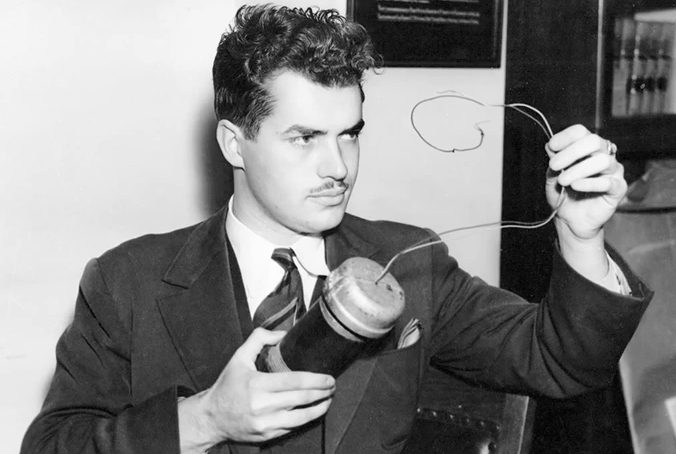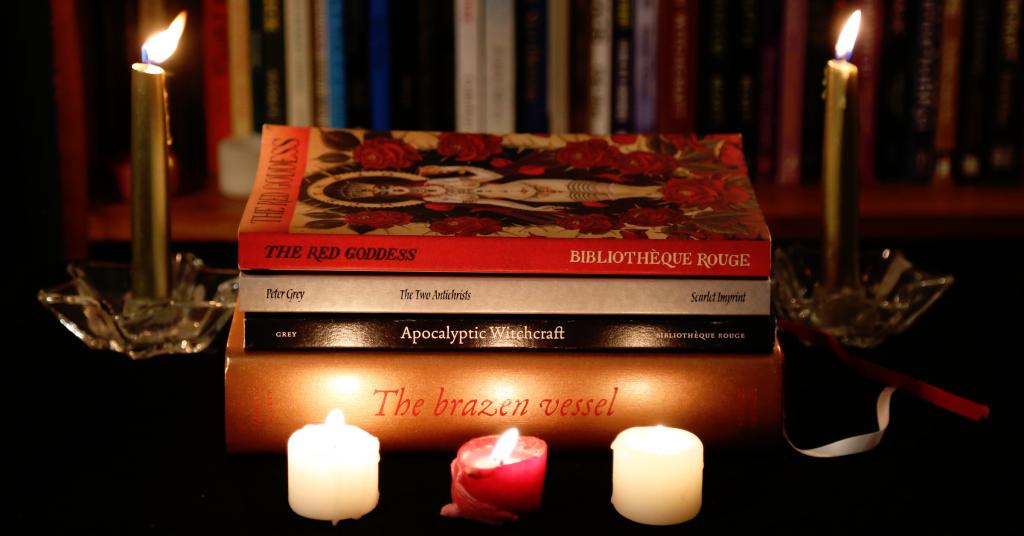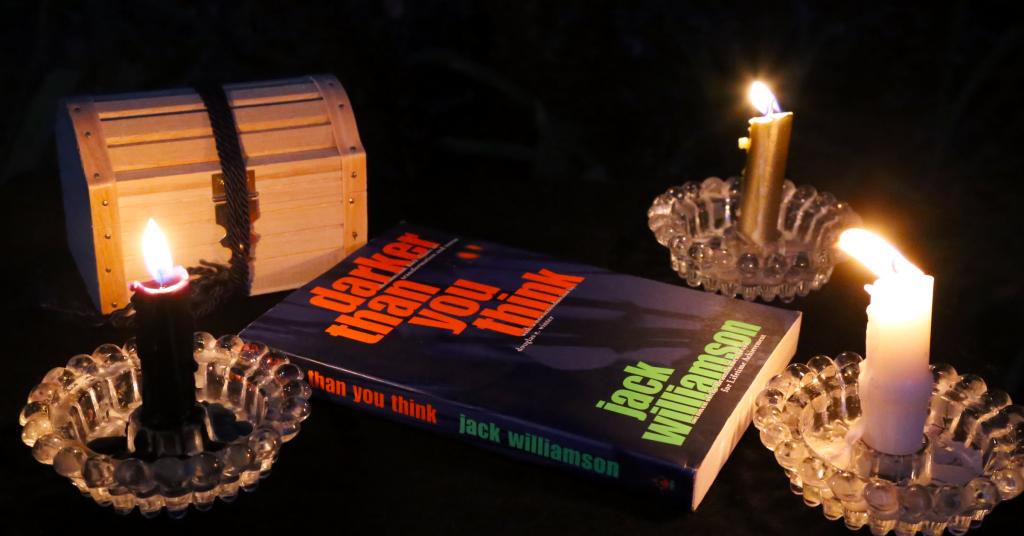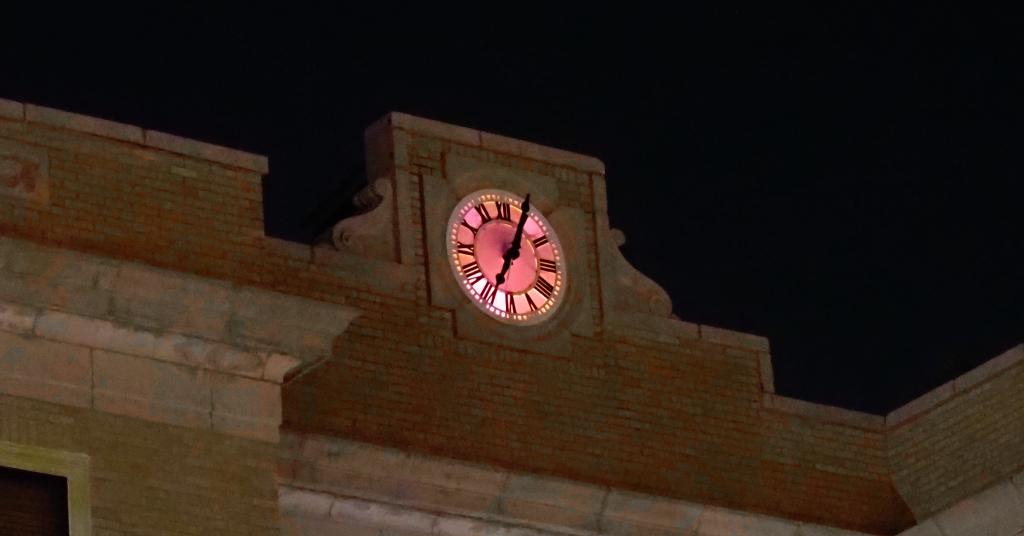Jack Parsons was one of the most fascinating figures of the modern Pagan / occult / witchcraft movements.
He was arguably the greatest American occultist and the greatest American rocket scientist of the 20th century. He dropped out of college for financial reasons, but his passion for rocketry drove him to make significant advancements in solid fuels and to co-found Jet Propulsion Laboratory, which is now part of NASA.
Magically, he was active in the OTO, corresponded directly with Aleister Crowley, and in 1946 he performed the Babalon Working to bring the Goddess Babalon into the world.
And then the Red Scare began. Parsons’ occultism plus his interest in Marxism resulted in the loss of his security clearance and with it, his employment and livelihood. He founded a pyrotechnics company to make a living. In 1952 he died in an explosion that was officially ruled an accident, but may have been suicide and may have been murder.
He was only 37.

The Two Antichrists
Earlier this year I read The Two Antichrists by Peter Grey of Scarlet Imprint. It’s largely a spiritual biography of Parsons and his magical coworker – and betrayer – L. Ron Hubbard. Yes, that L. Ron Hubbard. Parsons claimed the title of Antichrist, but Hubbard earned it – and not in a good way.
I didn’t review The Two Antichrists, not because it was bad and I “conveniently forgot to review it” but because it’s out of the usual areas of interest for readers of this blog. I’m fascinated with the work of Peter Grey and Alkistis Dimech, but at the end of the day I’m a Pagan polytheist, not an occultist.
But then the coincidences started to add up.
One of the things Peter Grey discussed was the influence on Parsons of a fantasy / horror novel called Darker Than You Think by Jack Williamson. Jason Mankey also mentioned Darker Than You Think in his speculation around what might have happened if Parsons had lived. I wanted to read it for myself and see if there might be any inspiration for me.
The book is readily available – I got a 1999 reprint in excellent condition for $7. And so I read it on my recent vacation.
Darker Than You Think
Darker Than You Think was first published in 1940 in Unknown magazine. In 1948 it was expanded to novel length and published as a stand-alone book. It centers around Will Barbee, a reporter who drinks too much, in large part because he was kicked out of an anthropology program by a professor he considered a mentor and friend – for reasons that were never explained. When the professor flies home after two years’ field work in Mongolia with an announcement that will shock the world, Barbee covers it… only to see the professor drop dead on the tarmac before he can share his news.
The story that unfolds is one of witches and werewolves, and a prehistory of not one but two human species and a long-forgotten war between them. The witches are presumably the bad guys, but as the story progresses it becomes clear things aren’t so black and white.
It’s a product of its time. There’s a bit of Orientalism in it. Some of the anthropology and paleontology is outdated. But none of this really detracts from the story.
Darker Than You Think is a fascinating story. I’ve read very little fiction from the 1940s, but I’ve seen plenty of movies from that era. As I was reading it, the “movie” playing in my head was in black and white.
Except where April Bell was involved. She’s Barbee’s journalistic competitor who may know more about what’s going on than she lets on – maybe a lot more. I’m not sure if it was Williamson’s writing or my imagination, but I saw her in vivid colors.
The Book of Babalon
Parsons’ post-Babalon Working writings The Book of Babalon and The Book of the Antichrist are available for free on sacred-texts.com. Together they only run about 8000 words. Parsons intended them to be additions to Crowley’s The Book of the Law. I’m not a Thelemite, so whether they are or aren’t isn’t for me to say. But clearly they’re influenced by Crowley.
And they’re clearly influenced by Darker Than You Think.
Parsons was preparing to teach a correspondence course on witchcraft when he died. I don’t know what methods he would have taught, but he told us the ends he was seeking:
An end to the pretense and lying hypocrisy of Christianity.
An end to the servile virtues,and superstitious restrictions.
An end to the slave morality.
An end to prudery and shame, to guilt and sin, for these are of the only evil under the sun, that is fear.
An end to all authority that is not based on courage and manhood, to the authority of lying priests, conniving judges, blackmailing police, and
An end to the servile flattery and cajolery of mods, the coronations of mediocrities, the ascension of dolts.
Jack Parsons would have thoroughly enjoyed the 1960s. If his witchcraft course had taken off, he might have given Alex Sanders some competition for the title of “King of the Witches.” Certainly, his witchcraft would have been a lot more “do what thou wilt” and a lot less “an it harm none.”
Sadly, we’ll never know. But there’s a reason Parsons and his work are being explored now, almost 70 years after his death.
The truth in the fiction
Without giving away too much of the story, Darker Than You Think concludes with the witches getting ready to take the next step toward regaining the power they once held. As a Pagan and a magician (I don’t claim the title of witch, but my practice is very witchcraft-adjacent) I do not think we are anywhere close to that point – even though we can and do operate openly.
But I can’t help but think of how the Otherworld is bleeding through into this world. I think of the other-than-human persons who are starting to re-establish themselves in this world. Tower Time is bringing conflict not just within our world, but between the worlds.
Viewed in that light (no pun intended) Darker Than You Think looks less like fantasy and more like prophecy.
Because the cycles of magic have shifted. The edifices of empire are crumbling. The roads we were told to take are gone, and it’s up to us to find new roads – or to make them. And we’re going to need all the tools we can get, including magic.
Especially magic.
Darker Than You Think is a work of fiction. It’s not a how-to guide for witchcraft and magic. We can’t do the things Williamson’s witches can do, just as we can’t do the things the Harry Potter witches can do. But embedded in the fiction is the truth of a rapidly changing world.
And if it inspires you to double down on the magic we can do, that would be a very good thing.
For a Thelemic take on Jack Parsons, see this video by Georgina Rose, aka Da’at Darling.















